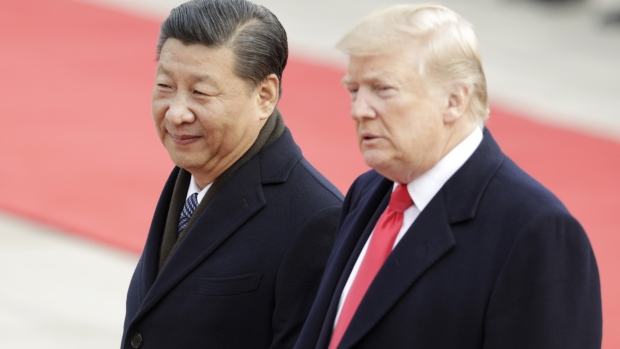Feb 11, 2019
Trump wants to meet with Xi ‘very soon’ over trade war
, Bloomberg News

xThe Trump administration said the U.S. president still wants to meet China’s Xi Jinping in an effort to end the trade war, a sign of optimism as negotiators from the world’s two-biggest economies start their latest round of talks this week.
“He wants to meet with President Xi very soon,” White House adviser Kellyanne Conway said Monday on Fox News. “This president wants a deal. He wants it to be fair to Americans and American workers and American interests.”
Uncertainty whether the leaders will meet to finalize an agreement has stoked concerns that negotiations are faltering as the March 1 deadline approaches. If there’s no deal by then, President Donald Trump has threatened to more than double the rate of tariffs on US$200 billion in Chinese imports.
Negotiators from the two countries are meeting this week in Beijing, with U.S. officials pressing China to commit to deeper reforms to a state-driven economic model that they say hurts American companies. Mid-level officials began discussions Monday in preparation for two days of talks starting Thursday involving U.S. Trade Representative Robert Lighthizer, Treasury Secretary Steven Mnuchin and Chinese Vice Premier Liu He.
Maybe Mar-a-Lago
Trump told reporters in January that he planned to meet Xi in late February, though he backtracked on that last week and said a gathering wouldn’t take place this month. It’s still possible the leaders may get together in March at Trump’s Mar-a-Lago resort in Florida, Conway said Monday, when asked about a report from news agency Axios to that effect. The U.S. president has said no deal will be final until he meets with his Chinese counterpart.
“He has forged a mutually respectful relationship with President Xi,” Conway said. “They will meet again soon.”
The last round of talks in Washington late last month resulted in China importing American soybeans as it implemented promises to buy more U.S. goods. While those purchases will provide relief to U.S. farmers, there has been no breakthrough on the structural issues separating the two nations, such as industrial policy, government subsidies, protection of intellectual property or forced transfers of technology.
Strong Motivation
Facing an economic slowdown at home, the Chinese government has a strong motivation to address American demands and put an end to the trade war. It has fast-tracked approval of a law that would ban theft of intellectual property and forced technology transfers, but the question is how much more it can compromise. With the U.S. now pushing a plan of prioritizing spending on artificial intelligence research, it will be difficult to talk China out of its policies to dominate advanced technologies.
And with March 1 approaching, speculation is growing that it will be hard for negotiators to agree to the complete deal demanded by Trump.
“The key is whether the U.S. and China can find common ground,” according to He Weiwen, a former commerce ministry official and now a senior fellow at the Center for China and Globalization, an independent research group. “It can’t be ruled out that the U.S. would extend the deadline, but still, it’s too early to predict anything.”








